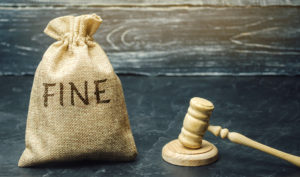
When Nevada has defined criminal conduct related to property crimes, the state has not only made it illegal to actually steal items, but it has also expanded the definition of criminal conduct to include those who willfully interact with stolen items in any way. For example, the state of Nevada has a subcategory of Chapter 205 of Title 15 that specifically defines criminal conduct related to buying or receiving stolen goods.
If you have been accused of buying or receiving stolen goods, the penalties you face could be substantial. The consequences of conviction could include jail time, substantial financial loss, and a criminal record that impacts your opportunities going forward. Because of the serious consequences associated with buying or receiving stolen goods, you need to be as strategic as possible about responding to accusations that you bought or received stolen goods so you can work towards acquittal or reduce the severity of the penalties through an effective plea agreement.
LV Criminal Defense can help. Our Vegas criminal defense lawyers can provide you with insight into the ways in which prosecutors handle property crimes cases in Nevada and we can help you to be proactive in fighting accusations of wrongdoing. To find out more about the assertive and knowledgeable representation our Vegas criminal lawyers can provide to you, give us a call today.
The subcategory of offenses related to buying or receiving stolen goods includes Nevada Revised Statute section 205.275, Nevada Revised Statute section 205.290 and Nevada Revised Statue section 205.295.
According to N.R.S. 205.275, you can be found guilty of an offense involving stolen property if you buy, receive, possess, or withhold property for your own gain or to prevent the rightful owner from possessing it.
Nick Wooldridge has a long track record of representing clients accused of serious federal and state crimes in Nevada.
In order for you to be convicted of this offense, the prosecutor must prove that you either knew that the property was stolen or that the circumstances were such that any reasonable person would have been aware that the property was stolen. The statute also defines stolen property broadly to include any property that has been taken from its owner through larceny, robbery, theft, burglary, embezzlement, or any other related offenses that are considered crimes against property.
N.R.S. 205.275 indicates that if the stolen property you are in possession of is valued at less than $250, you can be found guilty of a misdemeanor criminal offense. If the property is valued at $250 to less than $2,500, you may be found guilty of a category C felony. If the property is valued at $2,500 or more, or if the property is a firearm, you will be charged with a category B felony. If convicted, you could be sentenced to a minimum of one year of imprisonment and a maximum of 10 years in prison along with a fine up to $10,000. In addition to these penalties, you could be ordered to pay restitution, which means repaying the victim from whom the property was stolen.
The law makes clear that a defendant can be prosecuted under N.R.S. 205.275 even if the person who actually stole the property has not been prosecuted or has not been convicted. The statute also indicates that if a defendant possesses three or more of the same items or a similar class of items from which a manufacturer’s serial number or manufacturer’s identification number has been removed, altered, or defaced, this is prima face evidence creating a presumption that the defendant knowingly has stolen property in his possession.
N.R.S. 205.290, within the subcategory of offenses related to stolen goods, provides details about the restoration of property to its rightful owners. According to the relevant statute, any property that has been obtained through larceny, burglary, robbery, or embezzlement which is found in the possession of the person who unlawfully took the property should be returned to the rightful owner of the property.
Finally, the last statute within this subsection related to stolen goods establishes the duty of police officers in connection with stolen property. According to N.R.S. 205.295, an officer who arrests an individual involved in a robbery crime or a larceny crime should use reasonable diligence in order to secure the property that the defendant had allegedly stolen. The officer is answerable for the property that he seizes and should annex a schedule detailing the seized property to the warrant when an arrest occurs.
When I initially met with Mr. Wooldridge, he took the opportunity to sit and go over my problem with me. He described details in my case which he found disturbing and explained why he I should have him on my side.
If the district attorney requires the stolen property to use for evidence in the case against the defendant, the officer who makes the arrest of the person involved in the robbery or larceny crime should deliver it to the district attorney upon the DA’s demand and the DA should sign a receipt for it after which the DA will become responsible for it.
These rules aim to ensure that property is, whenever possible, returned to its rightful owner after it has been stolen.
Nevada criminal lawyers at LV Criminal Defense can provide you with representation as you respond to accusations related to buying or receiving stolen goods. We understand what prosecutors must prove for you to be convicted of crimes related to stolen goods and we will work hard to help you introduce reasonable doubt so you can earn an acquittal. We can also negotiate a plea agreement on your behalf if you don’t want to fight charges in court.
To find out how our firm can help you to deal with any property crimes charges, give us a call today to talk with a Vegas defense attorney you can count on.